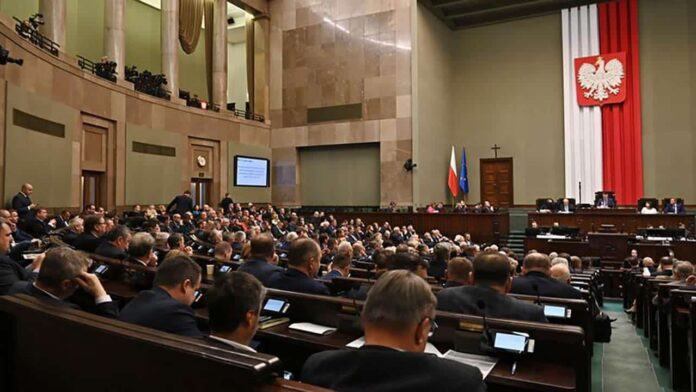As we wait for the successful formation of the government by the recent election-winning coalition, the Business Centre Club (BCC) expresses anticipation for the major challenges that will be faced by the heads of departments overseeing various economic sectors and public policies.
Many hints come from the election programs presented more or less detailed during the past campaign, but also initiatives started by the current team. Additional pieces of the puzzle are also sent to us by European institutions with their recommendations and guidelines. We should expect that among the priorities of the expected Ministers of Digitalisation and Education will be elements of the latest recommendations of the European Council on adapting education to the real, contemporary digital transformation emphasizes Wojciech Płażalski, the BCC’s expert in telecommunication and digital development investments.
The BCC’s expert reminds us that as part of the path to the “Digital Decade”, the current EU goal is for 80 % of the population aged 16 to 74 to have at least basic digital skills by 2030. Unfortunately, the situation in Poland doesn’t look optimistic.
The Polish Economic Institute recently reported that in 2021 only 43% of people in Poland had at least basic digital skills, placing us below the EU average. Enthusiastic news emerges regarding progress in other areas related to digital transformation, but digital education remains a category requiring a decisive acceleration.
Earlier expressed concerns seem justified that the loud campaign of distributing laptops to some students and teachers by the recently disbanded Ministry of Digitalisation will not be effective without far-reaching changes in the education system and adaptation of teaching programs to new technologies, which are becoming cheaper and more accessible, but still hide many unknowns from Polish users- claims Wojciech Płażalski.
Impulses for activity in this area also reach us from the EU Council, which in its latest (announced in November of this year) guidelines encourages member countries to:
- improve the range of teaching digital skills and competences in primary and secondary education
- promote cross-curricular teaching of digital skills in different subjects
- ensure that adults have the opportunity to acquire digital skills and address the shortage of specialists in the field of ICT.
We have pretty good tools to implement these recommendations, or at least sufficient to start with. Solid internet coverage, including fibre optic, and a decreasing number of blank spots, supplemented by the expected (after many complications) quick implementation of new functions, more accessible after the auction, the 5G network, together create a promising starting point. However, without a common strategy and consistent collaboration of the key ministries of digitalisation and education in this respect, the Finnish education system, still considered by many experts as exemplary, will remain unattainable, and laptops will mainly be used for gaming at home after lessons. Going further, without effective and non-siloed cooperation of the mentioned ministries, it is hard to imagine achieving a breakthrough in many other areas important from the point of view of the economy. Without this, Poland will not quickly improve its embarrassing position in the DESI rankings, nor will we build a strong competitive economy, based on highly qualified expert and professional ICT resources. We also need to educate the modern consumer, to be aware of the dangers, but also the benefits, brought by artificial intelligence, especially in light of the accelerating e-commerce. Then, over time, the recurring discussion about trading Sundays may naturally disappear, and with each subsequent holiday we will set new records for online orders. In order to achieve this, a thoughtful and truly strategic approach is necessary. summarizes the BCC expert.

















